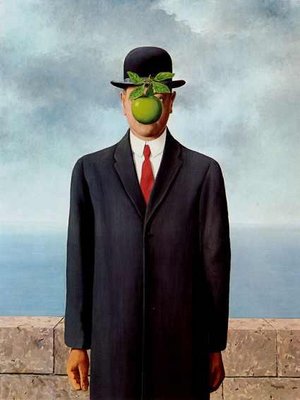For those who are counting, this will be my 4th post about Islamophobia. I think this is an important issue that is not being addressed by our leaders, and some are even exacerbating it. I was originally going to solely focus on the Norway bombings however, in light of a recent op-ed by Bruce Bawer, I am going to talk about both. Strap your seat belts folks, this is going to be one long and bumpy ride.
Over the past weekend of July 22,
deadly and tragic attacks took place in Oslo, and Utoya Island in Norway. An estimated 92 people were killed, with a majority being teenagers massacred on Utoya Island. Police have arrested Anders Breivik, the man who confessed to be responsible for the bombings and right-wing Christian extremest. While searching his belongings, police
uncovered a 'manifesto', in which Breivik calls for a war against multicultural society, hateful rants against Muslims, and mass killings of "marxists." He writes "The time for dialogue is over. We gave peace a chance. The time for armed resistance has come." Breivik writes he was a delegate to a secret meeting to reinstate the Knights Templar in 2002, and he also describes chilling events when he tests the bombs he has made.
The will of a monster, to say the least.
Brevik, in his call for 'resistance', was calling for a resistance in what he thought was a Muslim 'takeover' of Europe. A confessed white supremacist, he disliked the high level of cultural integration going on in Europe and the even higher immigration rate into Europe. He thought that the only way to preserve, what I can speculate, white European identity was through violence. It is no surprise to us now that he chose to bomb central government buildings and massacre youths at a Labour party- the liberal and dominant party - youth retreat. He wanted to kill off all the old and young leaders of the Labour party who did not share his vision.
This leads us to another unsettling fact, the
rise of hard-right, jingoistic political parties in Europe in the past year. In the Netherlands, Geert Wilders' Freedom Party has routinely been hostile to Islam as well as anything that isn't "Dutch". In Sweden, Norway's neighbor, he Sweden Democrats have won seats in parliament. The
Sweden Democrats have adopted a hard-line stance against Sweden's liberal immigration policy. It is evident through the resurgence of the far-right that Europe, as a whole, have not taken enough steps in order to integrate new immigrants into European communities. It is also evident that Europeans are taking frustrations/anti-immigrant sentiment out at the ballot box.
But it goes farther than that.
There has been a failure on the part of integration-ists and leaders in Europe to effectively stand up to these leaders in their often intolerant positions. In Europe, the world's beacon for progressive government, there has been a growing anti-immigrant (most immigrants being Muslims) growing on the continent.
How does this tie into the terrorist attacks?
Well heated rhetoric and irresponsible use of the right of free speech persuaded Brevik to perform the acts he did in order to 'save' Europe from Islam. Just think about it, a man hated a group of people based upon their religion so much, that he was willing to massacre youths and government officials. The fear-mongering of a Muslim-takeover is extremely foolish and irresponsible. Those who espouse these racist and fear tactics fail to think that they're comments can be taken to such a level. On this such occasion, it did.
Now on to Bruce Bawer. Why is he in this post?
Bawer, the author of
Surrender: Appeasing Islam, Sacrificing Freedom, recently wrote an op-ed piece in the
Wall Street Journal. I ask that you read
his piece before you continue reading this post.
Did your jaw drop yet? It is also astonishingly disconnected emotionally, almost like an apologoy a 5th grader gives you that they really don't mean.
Lets begin with the subtitle "
In his 1,500-page manifesto, Anders Behring Breivik slides alarmingly from a legitimate concern about the rise of Islam in Europe to propose 'terror as a method for waking up the masses." Apparently to Bawer, Islam in Europe is a legitimate concern. He uses this "legitimate concern" later in the piece too. What about Jews in Europe, Christians in Europe? Oh course they're not concerns for him. No, he solely focuses on Islam. In his piece, he goes on to give examples of the strict patrichial nature of Muslim families, and numerous other things which do raise some concern no matter which religion. However, Bawer has skewed his facts, and his views, into focusing only on the small misgivings of a group of people who Bawer defines by their religion and not their individual character
.
What really stunned me was the first sentence: "When bombs exploded on Friday in a compound of government office buildings in the heart of Oslo, I assumed, as did pretty much everyone, that the perpetrators were Islamic terrorists." Sir, are you too jaded and Islamophobic that you automatically assume it was a Muslim? There is historical precedent in all religions of terrorism in Europe. Bawer is terribly out of touch in his own world when he says "as pretty much everyone." Religious stereotyping and prejudice at its finest; and it serves to diminish the authority of an opinion.
Bawer is "stunned" it wasn't a Muslim terrorist. I mean with such a narrow viewpoint and author of the book mentioned above, who wouldn't be stunned. I cannot even begin to describe the atrocious stereotyping and false view he has of the European-Muslim population. To make things worse for Bawer, he mentions that Brevik mentioned Bawer's name/works 22 times (so unfortunate because that is one of my two lucky numbers.) I don't know about you, but if anyone used any of my writings or work to legitimize violence or killings, I'd be ashamed of myself for not being responsible enough in the use of my freedom of speech. And that is what it really comes down to; being responsible in what you say and write. It is obvious that Bawer is to naive to see this point.
His cause, he writes, has been "seriously damaged" by Brevik. Well I am not sure what your cause is Bawer, but judging by your book title antithesis you make, it has to do with the '"threats" of Muslim-Europeans and their rights as individuals. I am sure I have to be close to it.
At the last paragraph, he tries to protect himself by saying that many will falsely accuse him of being Islamophobic, which I am currently doing. However this being my first time hearing about him ever in my life, its pretty clear he is Islamophobic. I can accuse religions and minorities too, but oh no, don't dare say I am racist; its not like that. But that's exactly what it is. Take responsibility for what you write Bawer, because its unmistakeably Islamophobic.
A parody piece was done on Bawers op-ed, essentially using extremely minor diction changes to make a point on how poor (in my opinion, to put it nicely) Bawer's op-ed actually was. When you can use so minor diction changes have it relate to another terrorist attack, you know something has to be wrong with an op-ed.
In conclusion, it is deeply saddening and my heart goes out to the victim's families in Norway. However, we see that a larger problem of extreme rhetoric, extreme fear-mongering, and extremely prejudice views. Brevik was motivated out of insane fear of a cultural takeover, no doubt exacerbated by the irresponsible works of Bawer and many others. Be responsible in your use of freedom of speech. Looking towards the future, more must be done in order to address these problems which caused Brevik to do what he did, and singling out the Muslim population is not the right place to start. We must come together and spread tolerance among each other because in the end, "Why can't we see/ That when we bleed we bleed the same?"
P.S.
A fantastic piece on what I have stated in past posts about tolerance and to look on the bigger problem of radicalization, and not just Muslims (*cough* Rep. Peter King).
Update: A
9 part piece on the attacks came out on Spiegal Online. This 9 part piece is amazingly detailed and takes the ideas presented in this post to form a fuller, more professional argument.
















